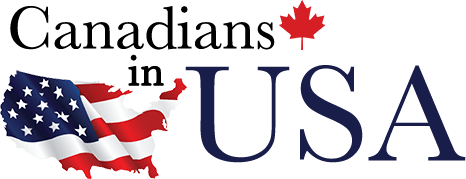
H-1B Visa for Canadian Citizens
Only a U.S. employer can sponsor you for an H-1B visa. There is no way for you to apply for an H-1B visa on your own, without a job offer, or without a company to sponsor you.
What is an H-1B visa?
Canadian citizens seeking temporary work in a “specialty occupation” that requires the skills of a professional may be eligible for an H-1B visa.
What is a “specialty occupation“?
These are occupations that require at least a bachelor’s degree or its equivalent, such as accountants, computer analysts, web programmers, web designers, engineers or financial analysts. However, relevant experience may be considered in lieu of such education requirement in some cases. H-1B visas can be issued for either full-time or part-time employment.
How do I apply for an H-1B visa?
An H-1B application can only be filed the employer. USCIS begins accepting H-1B petitions on April 1st of every fiscal year. The employer is the petitioner and the employee is the beneficiary. It is a multi-step process involving applications to be submitted to the Department of Labor, USCIS, and even the Department of State will first have to file a Labor Condition Application (LCA) with the U.S. Department of Labor. To qualify for an H-1B, the employee must be paid the prevailing wage – which means the minimum wage for that occupation in the geographic area that the employee will be working. The process usually takes a few months unless the employer files the petition under premium processing.
H-1B lottery
There is an annual of 65,000 H-1B visas available for applicants with bachelor’s degree. An additional 20,000 H-1B visas are made available for applicant’s with a U.S. Master’s degree.
If an employee will miss the H-1B lottery on April 1st, the employer should consider other visa categories to fill the gap, such as a TN visa or an L-1 visa. The earliest start date to work under an approved H-1B visa is Oct 1st of that fiscal year (in other words, six months from the start of the fiscal year).
H-1B validity period
The H-1B visa is valid for up to three years, and it can be renewed for another three years for a total of six years. After six years, you have to leave the United States for a period of one year before you can re-apply for a new H-1B. If you have applied for an employment-based green card while on your H-1B, you are eligible to extend your H-1B indefinitely under The American Competitiveness in the 21st Century Act.
Dual intent under H-1B status
The H-1B allows for “dual intent,” which means that you can be sponsored for permanent residency while on the visa through an employment-based green card, family-based green card or marriage-based green card. This is important because some work visas, such as the TN visa, does not allow for dual intent. Thus, if you apply for a green card while on a TN visa, it would contradict your supposed intent to return to Canada upon expiration of the visa. This, in turn, could affect your chances of a green card approval or it could result in a revocation of your TN visa.
H-1B visa versus TN visa

Canadians have the benefit of being able to choose between an H-1B visa and a TN visa. The question is, which one is better? The answer is that it depends on many things.
H-1B Advantages
- More occupations and professions are available under an H-1B visa than the TN visa. There is a specific list of TN occupations. If you don’t fall under a TN profession, you won’t qualify for a TN visa
- H-1B is a dual intent status – meaning you can be sponsored for a green card while in H-1B status.
H-1B Disadvantages
- Harder to get. The H-1B visa is subject to a lottery, meaning that it is only available if an employer files a petition on April 1st of each fiscal year.
- The H-1B must be submitted by an employer. The employee cannot file his or her on H-1B application.
- You may only have an H-1B for 6 years unless you qualify for an extension under AC21. Otherwise, you would have to leave the U.S. for at least one year before getting another H-1B.

